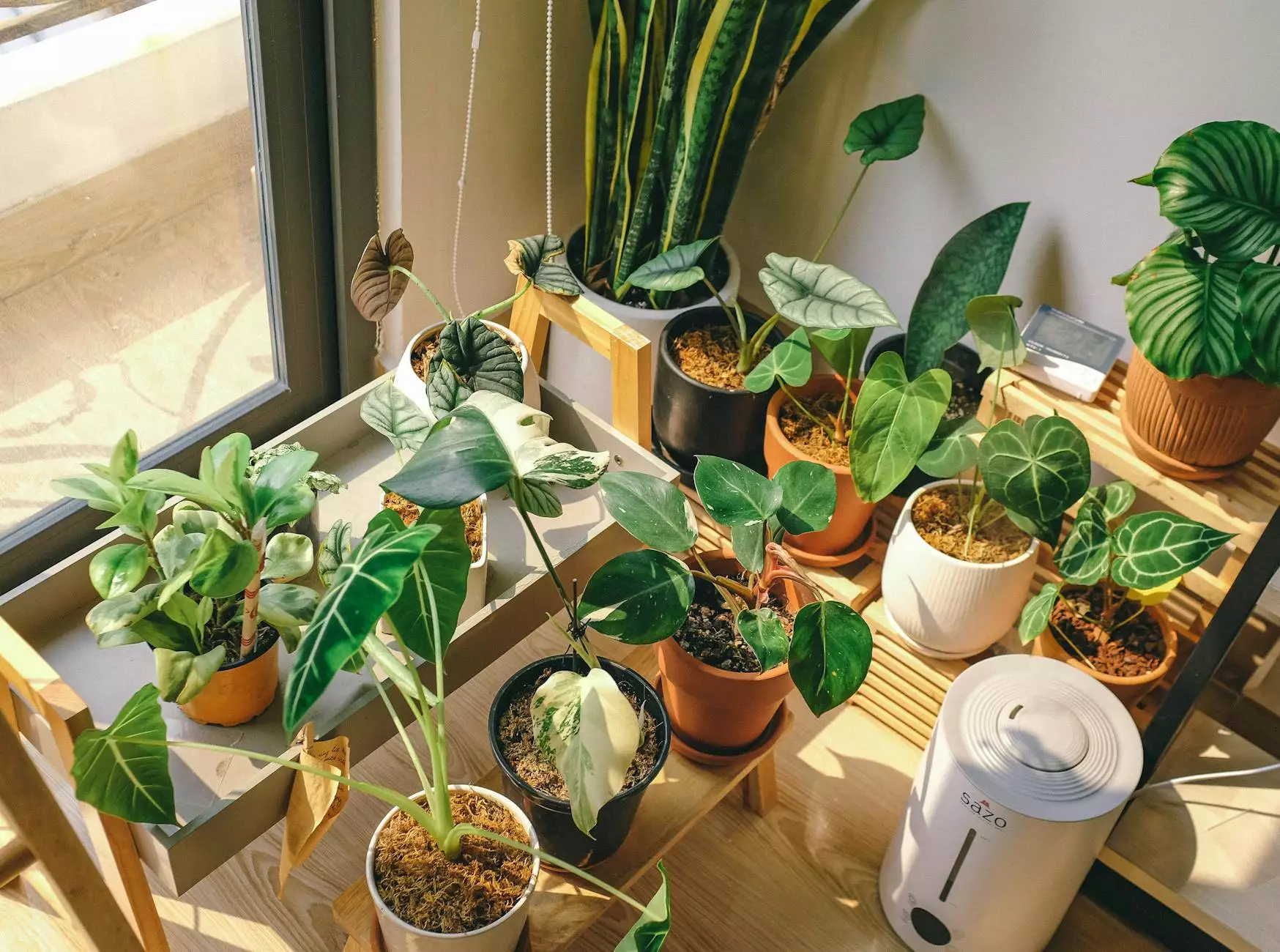The Importance of Industrial Humidifiers in Various Industries

In today's fast-paced industrial world, industrial humidifiers play a crucial role in maintaining optimal humidity levels in various environments. From manufacturing plants to agricultural facilities, the significance of humidity control cannot be overstated. This article dives deep into the functionalities, benefits, and applications of industrial humidifiers, while offering insights into why they are an essential investment for businesses across different sectors.
What are Industrial Humidifiers?
Industrial humidifiers are sophisticated devices designed to add moisture to the air in large spaces. They are pivotal in environments that require precise humidity control, facilitating both human comfort and machinery efficiency. Available in various forms, including vaporizing, atomizing, and steam-based options, these systems ensure that workplaces remain conducive for both employees and processes.
Types of Industrial Humidifiers
- Steam Humidifiers: Utilize steam as a method of adding moisture to the air. They are effective in maintaining high humidity levels.
- Evaporative Humidifiers: Rely on the natural process of water evaporation to increase humidity levels. They are energy-efficient and environmentally friendly.
- Ultrasonic Humidifiers: Use high-frequency sound waves to create a fine mist of water vapor. They're especially useful in smaller industrial applications.
- Spray Humidifiers: Inject water droplets directly into the air, providing instant humidity adjustments and suitable for larger spaces.
Benefits of Incorporating Industrial Humidifiers
Industrial humidifiers offer a wide array of benefits that can enhance operational efficiency. Here are some key advantages:
1. Improved Product Quality
Maintaining the right humidity level is vital for industries like textiles, pharmaceuticals, and food production. High humidity prevents materials from drying out, which can lead to product degradation. For instance, in the textile industry, a consistent humidity level helps preserve the quality and prevent damage to the fabrics during the manufacturing process.
2. Enhanced Worker Comfort
A comfortable work environment leads to increased productivity. High humidity levels can cause discomfort, while very low humidity can lead to health issues such as dry skin and respiratory problems. Industrial humidifiers help maintain an optimal humidity range, promoting worker welfare and reducing absenteeism.
3. Energy Efficiency
By controlling humidity levels, businesses can optimize their energy consumption. For instance, regulating humidity can reduce reliance on heating and cooling systems, leading to lower energy bills. Many modern systems are energy-efficient, ensuring that companies not only save money but also reduce their carbon footprint.
4. Control Static Electricity
Static electricity can pose significant risks in various industries, particularly in electronics and manufacturing. High humidity levels help dissipate static electricity, minimizing the risk of electrical shocks and potential product damage.
Applications of Industrial Humidifiers
Industrial humidifiers are versatile and find applications across various sectors:
1. Manufacturing
In manufacturing environments, maintaining humidity levels is crucial for processes such as plastic molding, wood processing, and metal fabrication. These processes often require specific moisture levels to avoid defects and ensure quality.
2. Agriculture
In the agricultural sector, industrial humidifiers are employed in greenhouses and livestock buildings. Proper humidity control can promote healthier plant growth and improve animal health, leading to better yields and quality.
3. Food Processing
Humidity plays a critical role in food manufacturing and processing environments. Maintaining adequate moisture during production prevents spoilage, and ensures that food products retain their quality throughout processing and storage.
4. Data Centers
Data centers are sensitive environments where temperature and humidity control is necessary to ensure the proper functioning of IT equipment. The implementation of industrial humidifiers helps maintain optimal humidity levels, reducing the risk of overheating and equipment failure.
Choosing the Right Industrial Humidifier
With various options available, selecting the right industrial humidifiers for your business requires careful consideration of several factors:
1. Evaluate Your Requirements
Assessing your specific humidity needs is the first step. Consider factors such as the size of the space, the type of industry, and the level of humidity required for operations.
2. Energy Efficiency
Look for models that consume less energy while providing effective humidity control. An energy-efficient system will save costs in the long run and contribute positively to your sustainability goals.
3. Maintenance Requirements
Choose a system that offers low maintenance needs. Understanding the maintenance procedures and replacement parts will help minimize downtime and keep operations running smoothly.
4. Budget
Consider your budget and weigh the initial investment against potential savings on energy costs and productivity gains. Remember that the cheapest option may not always be the most cost-effective in the long run.
Conclusion
Investing in industrial humidifiers is not merely a choice but a necessity in many sectors. Their ability to enhance product quality, promote worker comfort, and improve energy efficiency makes them invaluable to businesses aiming for operational excellence. As industries continue to evolve, the importance of maintaining ideal humidity levels will only grow, making these devices essential components of modern industrial infrastructure.
For businesses looking to enhance their environmental control solutions, consider exploring options at Climatronics. Embrace the benefits of industrial humidifiers today and unlock the potential for improved productivity and quality in your operations.



